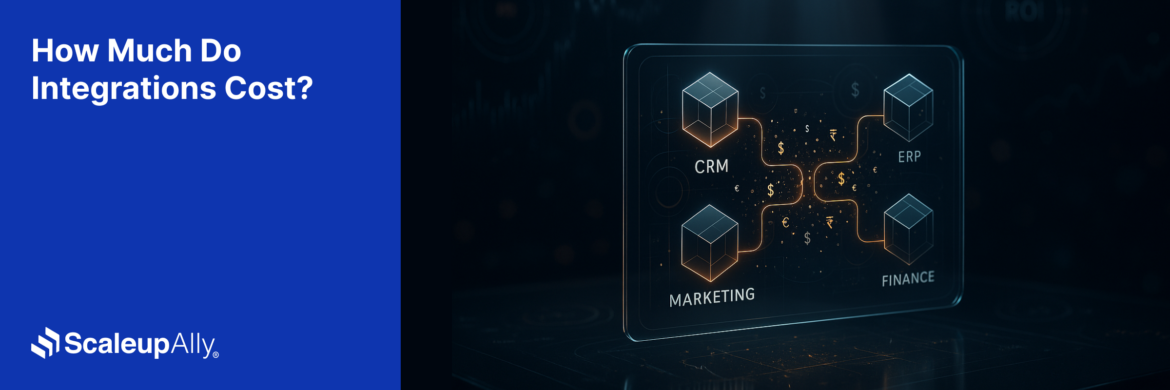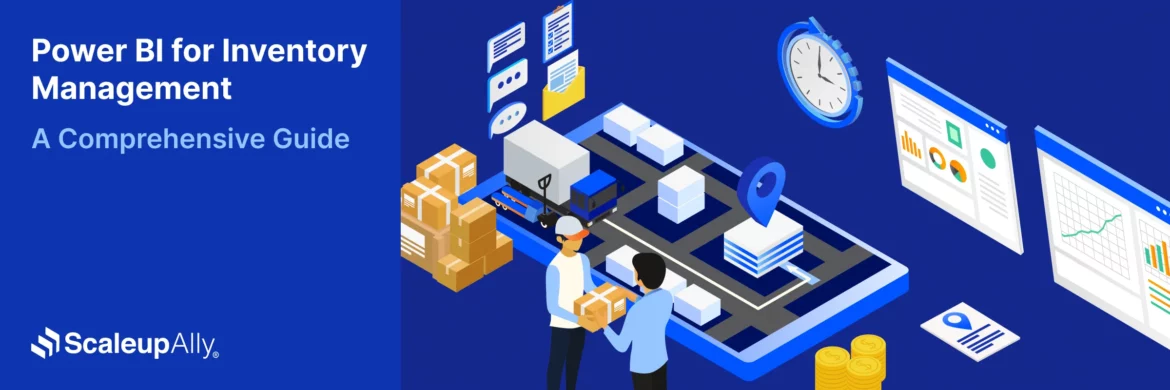
10 Proven Benefits of CRM in Banking
Tarsem Singh | December 26, 2023 , 7 min read
Table Of Content
The banking industry is changing quickly, with lots of competition and customers wanting more from their banks. Banks have significant challenges, like retaining customers when there are so many banks to choose from and following stringent regulatory requirements.
Fortunately, there’s good news: Customer Relationship Management (CRM) systems are helping banks deal with these challenges by giving them personalized ways to solve problems.
Understanding the Banking Conundrum
Banks grapple with many challenges, including customer churn, disintegrated data systems, and the need for seamless regulatory compliance. Customers want more personalized service and quick solutions to problems. Because of this, using CRM in banking isn’t just an option but something they need to do to succeed.
What is Banking CRMS?
“Banking CRMS” refers to Banking Customer Relationship Management Systems. These are specialized CRM systems tailored to meet the unique needs and challenges banks and financial institutions face.
In banking, CRM involves using technology to manage and analyze interactions with potential customers. The objective is to improve business relationships and customer retention and drive sales growth.
Banking CRMS is designed to address specific requirements within the financial sector. Here are some key features and functionalities associated with Banking CRMS:
- Customer Data Management: Banking CRMS centralises and organises customer data, including transaction history, preferences, and communication history. This provides a comprehensive view of each customer, aiding in personalized interactions.
- Regulatory Compliance: Given the highly regulated nature of the banking industry, CRMS in banking often includes features that facilitate compliance with regulatory requirements. This involves ensuring the security and privacy of customer data and generating reports for regulatory authorities.
- Risk Management: Banking CRMS incorporates risk assessment and management tools. This includes monitoring transactions for potential fraud, identifying patterns indicative of risk, and helping banks stay proactive in mitigating financial risks.
- Marketing and Campaign Management: These systems assist banks in designing and implementing targeted marketing campaigns. By analyzing customer data, CRMS can identify opportunities for cross-selling or upselling, leading to more effective marketing strategies.
- Integration with Banking Systems: Banking CRMS is designed to seamlessly integrate with other banking systems, such as core banking systems, accounting software, and mobile banking platforms. This ensures a cohesive and unified approach to customer data and service delivery.
- Customer Service and Issue Resolution: CRM systems in banking streamline customer service processes by providing customer support representatives with a comprehensive view of customer interactions. This enhances issue resolution efficiency and contributes to a positive customer experience.
- Analytics and Reporting: These systems offer analytics capabilities, providing insights into customer behavior, market trends, and the overall performance of the bank. This data-driven approach helps in making informed business decisions.
- Mobile Banking Optimization: With the increasing reliance on mobile banking, Banking CRMS often includes features to optimize the mobile banking experience. This involves tailoring interfaces to individual customer preferences and ensuring a seamless user experience.
10 Proven Advantages of CRM in Banking
Here are a few advantages of using CRM in Banking:
1. Enhanced Customer Experience
CRM systems empower banks to deliver personalized services by consolidating customer data. A 360-degree view of customer interactions allows for tailored communication, anticipating needs, and providing seamless experiences across various touchpoints.
2. Improved Customer Retention
One of the primary concerns for banks is customer churn. By analyzing historical data and predicting future behaviors, CRM tools enable banks to implement proactive measures to retain customers. Loyalty programs and targeted communication become more effective with insights derived from CRM.
3. Efficient Lead Management
In a highly competitive industry, efficient lead management is crucial. CRM systems streamline the process by tracking leads, identifying the most promising ones, and ensuring they are efficiently pursued. This not only saves time but also optimizes resource allocation.
4. Regulatory Compliance Made Easy
The banking sector operates under stringent regulations. CRM systems are a compliance ally by centralizing data and automating reporting processes. This reduces the risk of non-compliance and frees up valuable resources.
5. Streamlined Communication
Effective communication is the cornerstone of a successful banking relationship. CRM tools facilitate seamless communication by ensuring all customer-facing teams access the same up-to-date information. This minimizes errors, reduces redundancy, and enhances the overall customer experience.
6. Data-Driven Decision Making
In the data-rich banking environment, harnessing insights is key. CRM systems analyze vast datasets, providing actionable insights that inform strategic decision-making. From product development to marketing strategies, data-driven decisions lead to improved outcomes.
7. Cross-Selling and Upselling Opportunities
Understanding customer preferences and behaviors allows banks to offer targeted cross-selling and upselling opportunities. CRM systems identify these opportunities, enabling banks to suggest relevant products or services, thereby increasing revenue per customer.
8. Efficient Problem Resolution
Customer issues are inevitable, but the efficiency they are resolved sets banks apart. CRM systems equip customer support teams with a comprehensive customer history, speeding up issue resolution and enhancing overall customer satisfaction.
9. Real-Time Analytics
CRM tools provide live insights into customer interactions, allowing banks to respond swiftly to market trends, customer needs, and emerging opportunities.
10. Scalability and Flexibility
As banking operations evolve, scalability and flexibility become non-negotiable. CRM systems are designed to grow with the organization, adapting to changing needs without compromising efficiency. This ensures a future-proof investment in technology.
Real-Life Transformations: Banks Harnessing the Power of CRM
Let us turn our attention to real-life examples of banks that have successfully harnessed the power of Customer Relationship Management systems. These case studies inspire, illustrating how CRM can be a game-changer in the banking industry.
1. Wells Fargo: Personalized Cross-Selling
Wells Fargo, a global banking giant, implemented CRM to enhance its cross-selling initiatives. By analyzing customer data, Wells Fargo identified opportunities for cross-selling additional services. The result? A significant increase in the average number of products held by each customer showcases the potential of CRM to boost revenue through targeted sales efforts.
2. HDFC Bank: Streamlining Customer Service
HDFC Bank, one of India’s leading banks, utilized CRM to streamline customer service operations. The bank empowered its customer support teams to provide faster and more accurate responses by centralizing customer information. This led to a substantial improvement in customer satisfaction scores and a notable reduction in query resolution times.
3. JPMorgan Chase: Enhancing Risk Management
JPMorgan Chase, a global financial powerhouse, leveraged CRM to fortify its risk management processes. The system continuously analyzed transactional data, identifying patterns indicative of potential risks. This proactive approach enhanced the bank’s ability to mitigate risks and contributed to a robust and secure banking environment.
Conclusion
Implementing CRM in banking is not just a technological upgrade; it’s a strategic investment in the future. From enhancing customer experiences to streamlining operations and ensuring compliance, CRM systems play a pivotal role in addressing the multifaceted challenges faced by the banking industry.
As technology continues to reshape the financial landscape, embracing CRM is not just an option but a necessity for banks aiming not only to survive but to thrive in the competitive world of finance. Partner with ScaleupAlly to get the best BFSI IT services.
Frequently Asked Questions
Q: Can CRM Systems Be Customized to Meet Specific Banking Requirements?
Yes, CRM systems are highly customizable to meet specific banking requirements. Whether it’s compliance needs, unique customer service processes, or specific data integration requirements, CRM solutions can be tailored to fit a banking institution’s individual needs and workflows.
Q: Are There Any Examples of Banks Successfully Using CRM for SMBs?
Yes, Barclays, a UK-based bank, successfully used CRM to tailor its marketing strategies for small and medium-sized businesses (SMBs). By understanding the unique needs of this segment, Barclays created targeted marketing campaigns that resonated with SMB owners, resulting in increased engagement.
Q: How Can CRM Enhance Cross-Selling Initiatives in Banks?
CRM enables banks to enhance cross-selling by analyzing customer data to identify opportunities for additional services. This results in a significant increase in the average number of products held by each customer, showcasing the potential of CRM in boosting revenue through targeted sales efforts.
Q: What Practical Benefits Can Small and Medium-Sized Banks Derive from CRM?
Small and medium-sized banks can benefit from CRM by leveraging personalized marketing for targeted customer segments, streamlining customer service operations, and enhancing risk management processes. CRM systems offer scalable solutions tailored to the specific needs of smaller banking institutions.
Related Blogs

Data Warehouse Cost Breakdown: Factors, Pricing Models & Platform Comparison
Discover how much a data warehouse costs in 2025. Explore pricing models, key factors, and platform comparisons to plan your data budget effectively.
Tarsem Singh
Nov 6 ,
14 min read

How Much Do Integrations Cost? [Pricing Breakdown & Key Insights]
Learn how much integrations cost, key factors influencing pricing, hidden expenses to avoid, and effective ways to reduce integration costs.
Tarsem Singh
Nov 6 ,
9 min read

Power BI for Inventory Management: A Comprehensive Guide
Explore the hidden power of Power BI for inventory management and how it provides businesses with powerful analytics and visualization capabilities.
Tarsem Singh
Oct 8 ,
19 min read


